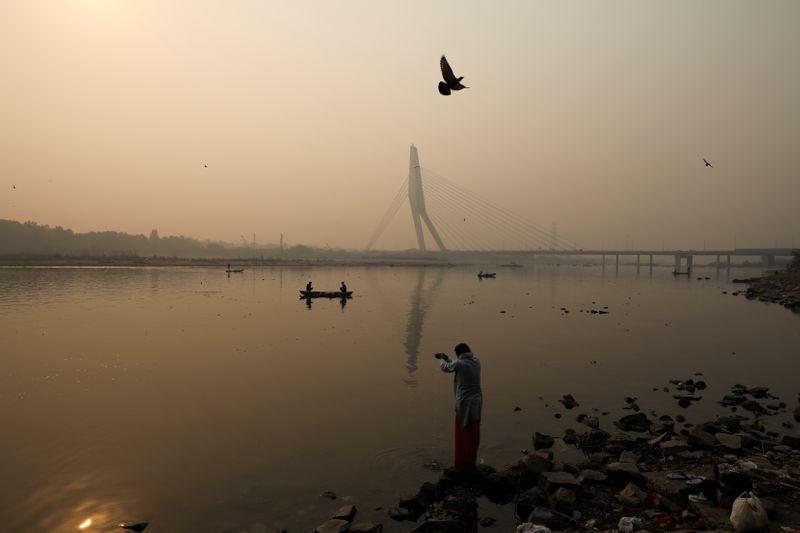‘Change Cropping Pattern Or Our Rivers Will Dry Up This Century’
Mar 23, 2022 | Pratirodh Bureau
FILE PHOTO: A man prays on the banks of the Yamuna river on a smoggy morning
A top West Bengal Pollution Control Board (WBPCB) official warned that “soon our rivers would dry up if we don’t change our cropping pattern now.”
WBPCB chairman Kalyan Rudra said myths about the common belief that supply of groundwater is endless is not true.
“Depletion of groundwater tables is responsible for destroying the perennial nature of rivers. If we don’t change our cropping methods now, soon our rivers, including the Ganges, will dry up, causing our civilization to go into extinction,” Rudra said at an interactive session with Bharat Chamber of Commerce on Tuesday on the occasion of World Water Day.
In several parts of India, especially in West Bengal, water intensive cropping methods are followed throughout the year which results in huge wastage of groundwater, Rudra claimed.
He emphasised on the conservation of rain and surface water by digging more water bodies like lakes and ponds. The WBPCB chairman said that inter-connection of rivers through dams and canals is both costly and ineffective as only 38 per cent of the water resources can be efficiently utilised by the end users.
Tarit Roychowdhury, Professor, School of Environmental Studies, Jadavpur University, said arsenic content in groundwater has increased from five to 20 fold in a span of three to seven years in about 14 districts of West Bengal.
Apart from arsenic poisoning, presence of fluoride has been found above the admissible limit at various places in Bankura, Birbhum and Purulia districts, he said. “The fluoride content in drinking water will cause breakdown of calcium in human bones and other fatal diseases”, Roychowdhury said.
“Presence of an equally perilous chemical called nitrate has been found in the groundwater of several districts like Nadia and Burdwan which causes infant cyanosis or blue baby syndrome”, Roychowdhury stated.
